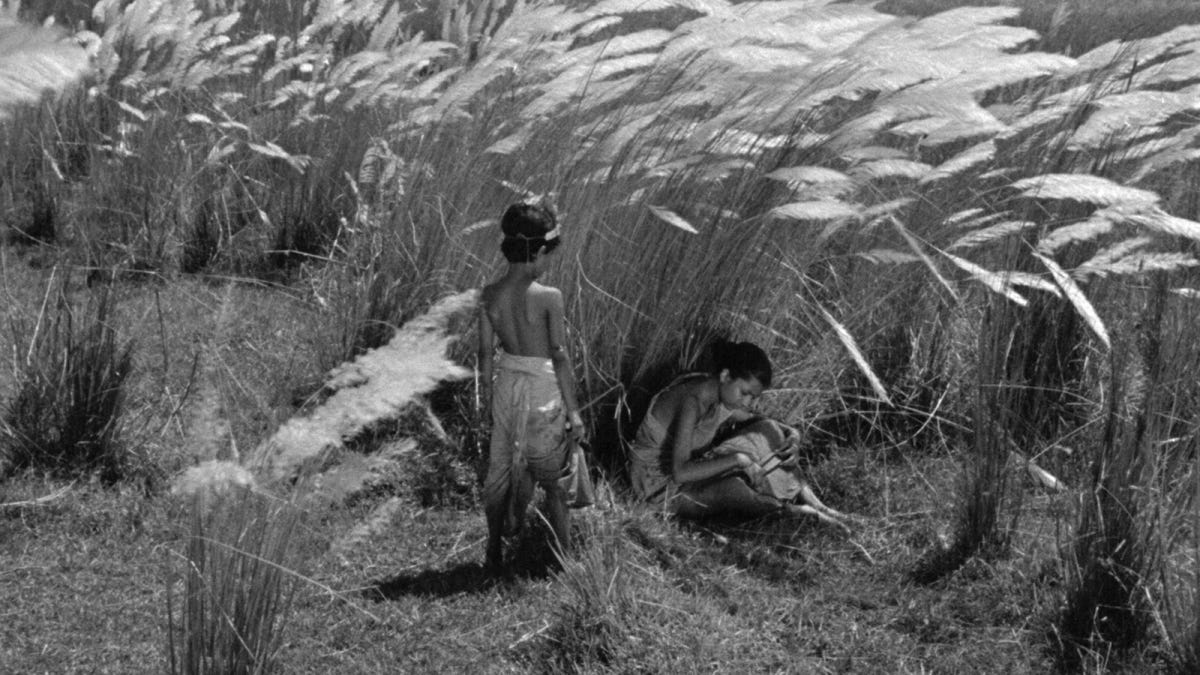All of Life: "Pather Panchali"
The coming of the cold temperatures had made me itch to hermit away and watch movies all day. So, it feels only fitting to get some screenings at the studio back on the schedule.
This week’s screening is Pather Panchali (1955), Satyajit Ray’s directorial debut. I haven’t actually watched myself, but studio regular Ben left it in the suggestion box for all of life, so I decided to invite him to share about the film and watch it all together on Saturday:
What do Martin Scorsese, Barry Jenkins, Wes Anderson, Mike Leigh, Apichatpong Weerasethakul, Julie Dash, Kelly Reichardt, Abbas Kiarostami, Werner Herzog, Charles Burnett, and Isao Takahata all have in common? They are all filmmakers who were inspired and influenced by Satyajit Ray's Apu Trilogy, of which this week's film, Pather Panchali (1955) is the first and whose production is the most storied. If Pather Panchali is not the literal, Most Internationally Acclaimed Indian Film Of The 20th Century, it is unquestionably the film that put India on the so-called "world cinema map." It was directorial debut of the Bengali filmmaker Satyait Ray, the great filmmaker and man who was "Indian cinema" to most people outside of South Asia for an extremely long time. Some part of its renown, aside from its historical importance, comes from the fact that its production was something of a miracle. There are many, many shoestring budget films made by a crew who had largely not worked on or been in a film before: none of them are as undeniably great to anyone with eyes and a heart as this is. It cannot be overstated what a big deal this trilogy (and especially this film) is, but more importantly it's just a beautiful, well-told story with extremely relatable characters. Continuing the theme of "all of life" from this series of Working Room, the Apu Trilogy is an adaptation of two novels by Bibhutibhushan Bandyopadhyay, following the life of its protagonist, Apurba Kumar Roy (Apu), from his childhood to his young maturity as a sensitive adult. The first film, Pather Panchali focuses on he and his sister's childhood in rural Bengal as an upper caste, but poor, family, and the imprints it leaves on his mind. It's frequently called "neorealist" but even more striking in its style is its unbelievable lyricism, while being very clear and pointed and accessible. It's kinda just good, and something you should watch. I will leave off with three quotes —
"The great, sad, gentle sweep of "The Apu Trilogy" remains in the mind of the moviegoer as a promise of what film can be. Standing above fashion, it creates a world so convincing that it becomes, for a time, another life we might have lived" - Roger Ebert
"Satyajit Ray’s Apu trilogy [...] is a great cinematic bildungsroman. It’s the story of nothing less than the awakening of a soul, the rise of an artistic vocation, and a young man’s confrontation with the grave responsibilities of life. It’s also the story of what it takes to be the creator of this trilogy and of the dozens of movies that followed." - Richard Brody
"Not to have seen the cinema of Ray means existing in the world without seeing the sun or the moon." - Akira Kurosawa (yes, that Kurosawa)
We’ll be showing Pather Panchali this Saturday, December 7th. Doors will open at 7:30 PM and the movie will begin promptly at 8:00! It is very helpful for people to RSVP here. This helps manages my expectations and get excited to see you! RSVP isn’t required, but, respectfully, please only if you’re actually planning to come.
<3 Liza



